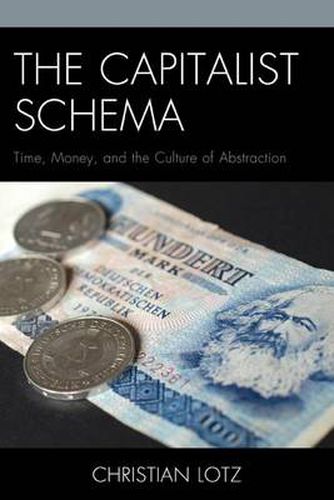Readings Newsletter
Become a Readings Member to make your shopping experience even easier.
Sign in or sign up for free!
You’re not far away from qualifying for FREE standard shipping within Australia
You’ve qualified for FREE standard shipping within Australia
The cart is loading…






This title is printed to order. This book may have been self-published. If so, we cannot guarantee the quality of the content. In the main most books will have gone through the editing process however some may not. We therefore suggest that you be aware of this before ordering this book. If in doubt check either the author or publisher’s details as we are unable to accept any returns unless they are faulty. Please contact us if you have any questions.
Christian Lotz argues that Immanuel Kant’s idea of a mental schematism, which gives the human mind access to a stable reality, can be interpreted as a social concept, which, using Karl Marx, the author identifies as money. Money and its fluid form, capital, constitute sociality in capitalism and make access to social reality possible. Money, in other words, makes life in capitalism meaningful and frames all social relations. Following Marx, Lotz argues that money is the true Universal of modern life and that, as such, we are increasingly subjected to its control.
As money and capital are closely linked to time, Lotz argues that in capitalism money also constitutes past and future social horizons by turning both into monetized horizons. Everything becomes faster, global, and more abstract. Our lives, as a consequence, become more mobile, fluid, unstable, and precarious. Lotz presents analyses of credit, debt, and finance as examples of how money determines the meaning of future and past, imagination, and memory, and that this results in individuals becoming increasingly integrated into and dependent upon the capitalist world. This integration and dependence increases with the event of electronics industries and brain-science industries that channel all human desires towards profits, growth, and money. In this way, the book offers a critical extension of Theodor Adorno’s analysis of exchange and the culture industry as the basis of modern societies. Lotz argues-paradoxically with and against Adorno-that we should return to the basic insights of Marx’s philosophy, given that the principle of exchange is only possible on the basis of more fundamental social and economic categories, such as money.
$9.00 standard shipping within Australia
FREE standard shipping within Australia for orders over $100.00
Express & International shipping calculated at checkout
This title is printed to order. This book may have been self-published. If so, we cannot guarantee the quality of the content. In the main most books will have gone through the editing process however some may not. We therefore suggest that you be aware of this before ordering this book. If in doubt check either the author or publisher’s details as we are unable to accept any returns unless they are faulty. Please contact us if you have any questions.
Christian Lotz argues that Immanuel Kant’s idea of a mental schematism, which gives the human mind access to a stable reality, can be interpreted as a social concept, which, using Karl Marx, the author identifies as money. Money and its fluid form, capital, constitute sociality in capitalism and make access to social reality possible. Money, in other words, makes life in capitalism meaningful and frames all social relations. Following Marx, Lotz argues that money is the true Universal of modern life and that, as such, we are increasingly subjected to its control.
As money and capital are closely linked to time, Lotz argues that in capitalism money also constitutes past and future social horizons by turning both into monetized horizons. Everything becomes faster, global, and more abstract. Our lives, as a consequence, become more mobile, fluid, unstable, and precarious. Lotz presents analyses of credit, debt, and finance as examples of how money determines the meaning of future and past, imagination, and memory, and that this results in individuals becoming increasingly integrated into and dependent upon the capitalist world. This integration and dependence increases with the event of electronics industries and brain-science industries that channel all human desires towards profits, growth, and money. In this way, the book offers a critical extension of Theodor Adorno’s analysis of exchange and the culture industry as the basis of modern societies. Lotz argues-paradoxically with and against Adorno-that we should return to the basic insights of Marx’s philosophy, given that the principle of exchange is only possible on the basis of more fundamental social and economic categories, such as money.